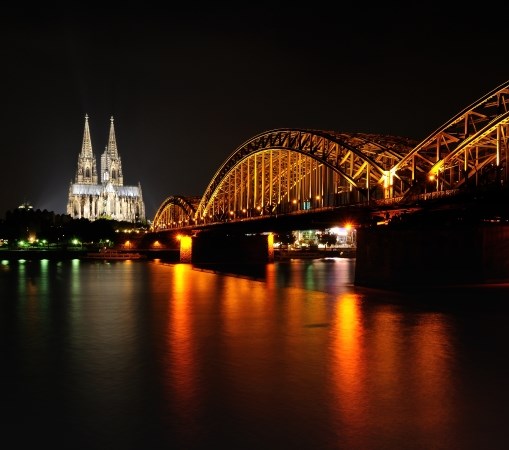Strengthen your knowledge, find the stories and expand your network among top minds in international sport

Photo: Nietnagel/Flickr
22.09.2011
From 3-6 October, Play the Game 2011 will take place at the German Sport University Cologne under the motto ‘bringing change to the heart of sport’.
A record number of around 150 speakers are ready to address some of the most urgent challenges:
- the lack of good governance and the threat from match fixing
- the legacy of mega-events
- the need for anti-doping reform
- the struggle to create growth in grassroots sport
- the discrimination of women in sport
- the use of hi-tech tools to optimize performance
- and, for the first time, an international debate on the links between sport and the Arab spring
Programme highlights
Corruption and good governance in sport:
The current troubles in world football’s governing body FIFA and the widespread corruption on and off the sports pitch are on top of the Play the Game 2011 agenda.
Last week Jerome Champagne, who until 2010 was Sepp Blatter’s right hand in international football diplomacy, declared he was ready to give his answer to the question ‘Which FIFA in the 21st Century?’
UEFA’s William Gaillard, Senior Advisor to UEFA President Michel Platini, will discuss the current challenges to the integrity of football, and founding WADA President Richard W. Pound from the IOC will launch a serious warning to sport if it continues along the current path.
Well-known whistleblowers and investigative journalists Andrew Jennings and Jens Weinreich will accompany a number of sports officials and outside experts in the search for better governance during the Change in Sport Day, which will take place on the last day of the conference:
Top people like Ingrid Beutler from Sport Accord and former Chilean football president Harold Mayne-Nicholls will join long-time observers like Professor Jean-Loup Chappelet from IDHEAP in Lausanne and Anne Schwöbel from Transparency International Switzerland.
Brazil 2014 and 2016:
Looking ahead towards 2014 and 2016, Brazil’s World Cup winning national captain from 1994, Raí, takes an independent look at what will happen to his home country and its sports life when it has to host the two biggest events in world sport, the FIFA World Cup and the Rio 2016 Summer Olympics.
Gender issues and doping challenges:
Is there a need for a third sex in sport, asks Arne Ljungqvist, head of the IOC Medical Commission and Vice Chair of WADA.
Legal Director Olivier Niggli from WADA will also be present to face a number of challengers ready to debate the upcoming anti-doping reforms: investigative journalist Hajo Seppelt, anti-doping scientists Perikles Simon and Wilhelm Schänzer, as well as the General Secretary of the European Elite Athletes Association, Walter Palmer.
The Special Adviser to the UN Secretary-General on Sport for Development and Peace, Wilfried Lemke, will stress the need for strengthening grassroots sport together with representatives of the EU and ISCA.
Scientific surveys to be revealed:
The results of various scientific surveys of great interest to the public will be revealed during the conference.
The world’s biggest survey on sports content in newspapers, International Sports Press Survey 2011, is an initiative by Play the Game which involves research teams in over 20 countries worldwide and is coordinated by the German Sports University Cologne.
The Danish Institute for Sports Studies and the European Venue Management Institute are carrying out a survey into the use of big stadium projects when the mega-event party is over: Are there too many white elephants in sport?
And Werner Pitsch from the University of Saarland discloses his research into the extension of match fixing in German soccer.
Partner workshops:
Last, but not least, some of Play the Game’s international partner associations will conduct their own workshops during the conference: here you can meet Sport and Citizenship (France), Supporters Direct (UK & Europe) and the European Journalism Centre (Holland).

Read more about the conference and register
Read more about the 150 speakers, the conference programme, the extra seminar and registration.
Play the Game is non-profit, but in order to cover some of our basic costs, we do charge a modest fee of 600€ for the full four day conference package (meals included) and the extra one day media seminar. It is also possible to register for one or two days.
There are a few vacant slots in some of our parallel sessions that are open to last-minute suggestions in case you have something to present at Play the Game 2011.
If you have questions regarding the conference programme, feel free to contact international director Jens Sejer Andersen at jens@playthegame.org.





